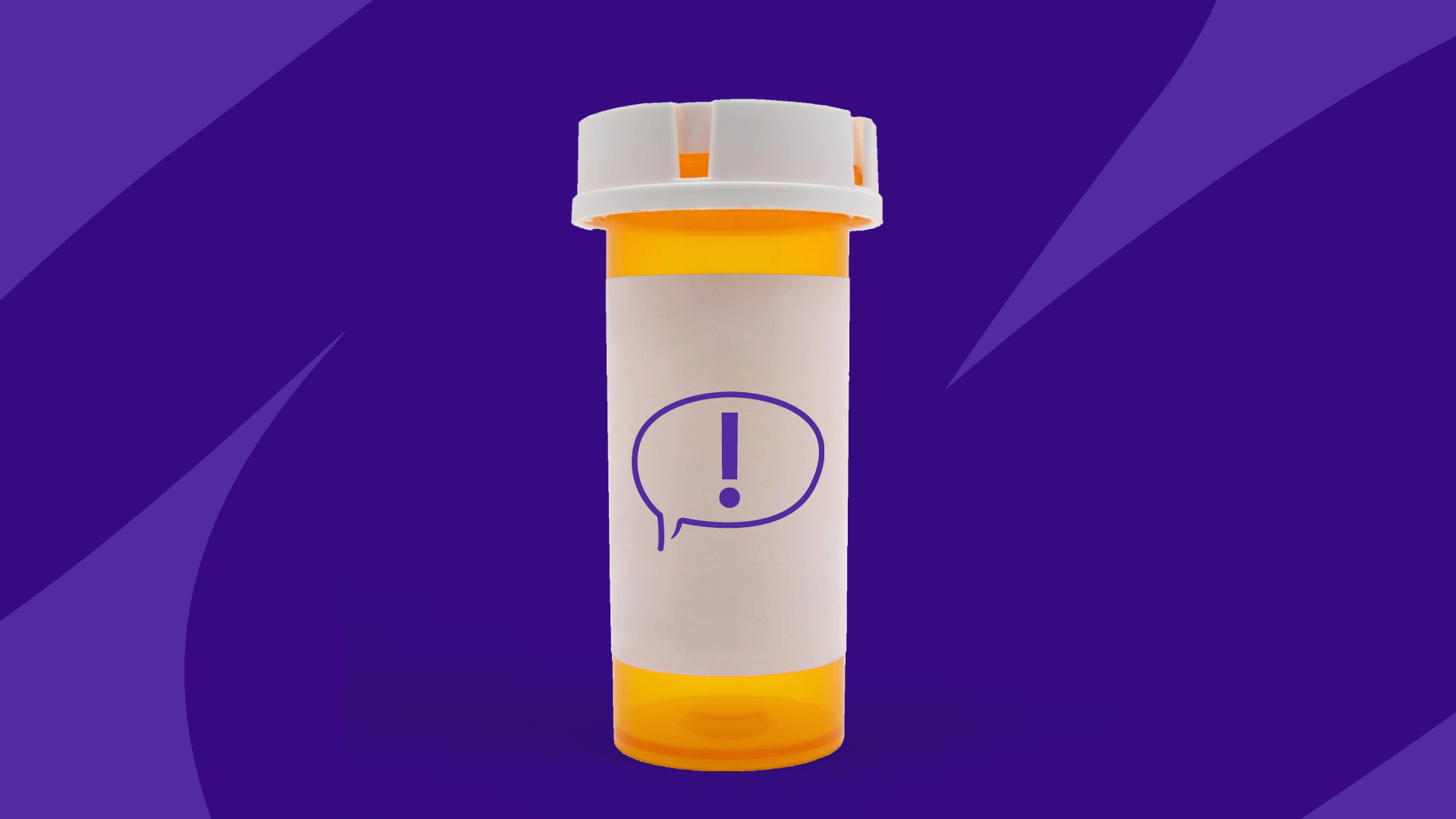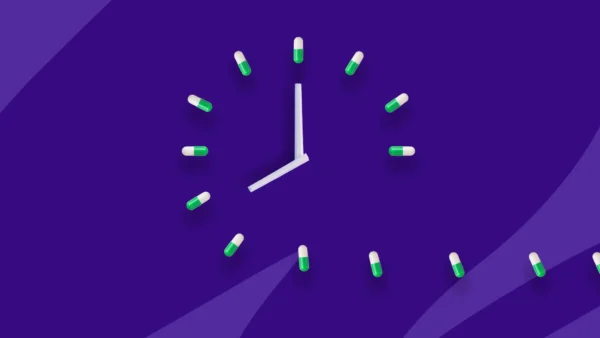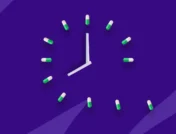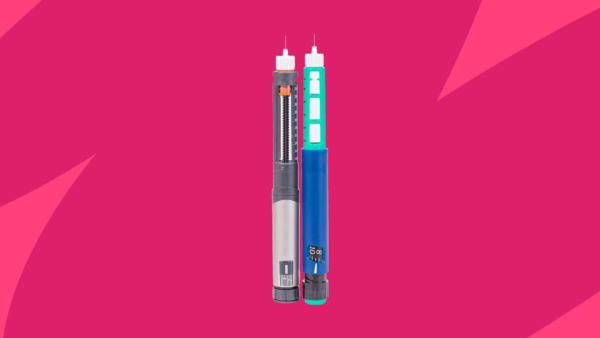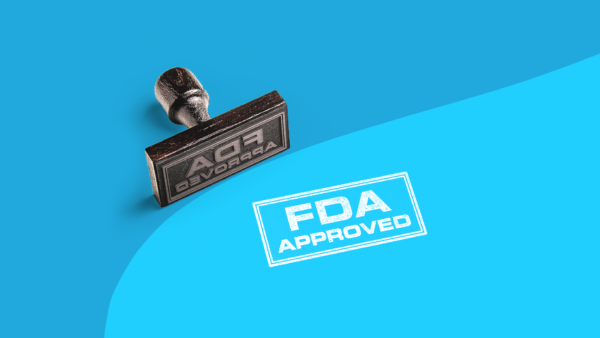Anxiety disorders are a very common mental health disorder. In fact, the American Psychiatric Association estimates that nearly 30% of adults are affected by an anxiety disorder at some point in their lives.
Finding the right treatment, however, may take some time and effort. Medication, combined with therapy, is useful for many people struggling with anxiety. One drug that could be a possible option for you is an anticonvulsant medication known as gabapentin.
Neurontin (gabapentin) was first approved by the U.S. Food and Drug Administration (FDA) as a brand-name drug in 1993 for the treatment of partial onset seizures. Currently, gabapentin is approved for the treatment of epilepsy, as well as nerve pain from conditions like shingles and moderate to severe restless leg syndrome.
While it may be best known as an antiepileptic medication, gabapentin has a number of off-label uses, too, such as for alcohol withdrawal, neuropathic pain, and hot flashes associated with menopause. It’s even been found to be successful in helping people with alcohol dependence or alcohol use disorder, as a clinical trial published in JAMA Internal Medicine found a few years ago.
And while it’s not considered a first-line medication for anxiety like a selective serotonin reuptake inhibitor (SSRI) is, some doctors also use gabapentin to treat anxiety.
Does gabapentin help with anxiety?
Gabapentin is an analogue of the neurotransmitter gamma aminobutyric acid (GABA). GABA basically calms excited neurons that are firing in the brain. Gabapentin mirrors or mimics that behavior through a slightly different mechanism of action, according to the Cleveland Clinic.
Of course, the big question is this: Does gabapentin help treat anxiety?
“I do think it works pretty well,” says Howard Weeks, MD, the chief medical officer for Pathlight Mood & Anxiety Center.
Psychiatric nurse practitioner Alysha Woods, MSN, PMHNP-BC, has a similar belief: “I feel that it does work well in some cases,” she says, adding, “Each medication and patient’s body respond differently to various treatments.”
Gabapentin does offer a few key advantages:
- Cost. It’s available in generic form, so it won’t cost as much as some other medications
- Mild side effects. Research suggests that gabapentin has a fairly mild side effect profile. The most common side effects of gabapentin are fatigue, headache and dizziness. That means that most people can tolerate it pretty well, says Dr. Weeks.
- Speed. “You notice an effect much sooner than you would with SSRIs, which can take four to six weeks,” says Dr. Weeks.
Some people feel more comfortable trying a drug like Neurontin (the brand-name version of gabapentin) because it has been used successfully in the treatment of other conditions and the side effect profile is so well-known, Dr. Weeks says.
RELATED: Gabapentin side effects | Anxiety statistics
How much gabapentin should I take for anxiety?
As with some other medications, your doctor may want to start you out on a relatively low dose of gabapentin and see how you do before titrating up. For example, if use of gabapentin is prescribed for anxiety, you might start out with a dose of 300 mg once per day and go from there, depending on how you react.
According to the recommended dosage levels for the FDA-approved uses of gabapentin, there is quite a range when it comes to the maximum daily dosage amounts. For example, it ranges from a maximum of 1800 mg per day (300 to 600 mg three times per day) for post-herpetic neuralgia to a maximum of 3600 mg per day (300 to 1200 mg 3 times per day) in the treatment of partial seizures.
But a higher dose doesn’t necessarily mean it will work better for you. A clinical trial published in Breast Cancer Research and Treatment examined the effectiveness of a 300 mg dose of gabapentin, a 900 mg dose, and a placebo for anxiety symptoms in breast cancer patients who had completed their chemotherapy. The researchers found that the 300 mg dose was associated with the best treatment outcomes in all but the patients who started out with the highest baseline anxiety.
How long does it take for gabapentin to work for anxiety?
When will you see the effects of gabapentin—that is, when will you know if it’s started working or not?
The short answer is that if you notice that you’re feeling less anxious, that’s probably a sign that your treatment is working. You may start to feel yourself relaxing, and your heart and breathing rates may begin to slow, says JB Kirby, ACNP-BC, a nurse practitioner who has prescribed gabapentin for some of her patients.
“They may start attending more social events, feel more energized, or they may notice that they are able to experience other emotions,” Kirby says. “The person may also be told by others that they look better and they look rested and calm.”
The specific time frame for how long that takes can vary from person to person. “It’s so variable, based on the patient and what’s happening with them,” Dr. Weeks says.
For instance, if you start taking a dose and then notice some improvements within a week, that’s a good sign, says Dr. Weeks. But as more time goes by, you’ll probably start to notice even more improvement if the drug is working for you. But if it takes longer, or the results aren’t satisfactory, it’s always possible to ask your healthcare provider if a dose increase is needed to see if that helps more. Never change your gabapentin dose on your own—always check with your healthcare provider.
Gabapentin for sleep and anxiety
When you take any new medication, it’s important to understand how it may affect you. One factor to consider is whether it has a sedative effect—that is, will it make you drowsy and more prone to dropping off to sleep?
Dizziness and drowsiness are pretty common side effects for gabapentin, so don’t be surprised if, when your doctor is prescribing it to you, the recommendation is to take it at night.
“I do recommend patients take it at night because it can make them drowsy, which can help with sleep initiation,” says Woods.
In fact, the general recommendation is to start with one dose of 300 mg in the evening and then build from there as needed. Some versions need to be taken with food, while others can be taken with or without food.
Alternatives to gabapentin for anxiety
As it’s not specifically FDA-approved for the treatment of anxiety, gabapentin is not considered a first-line treatment for this purpose.
Psychotherapy is often recommended as a first-line treatment for anxiety disorders, including in the treatment of generalized anxiety disorder and in the treatment of social anxiety disorder (or social phobia disorder). Your primary care physician or other healthcare provider might suggest cognitive behavioral therapy, which is known for being effective in the treatment of anxiety disorders, according to the Mayo Clinic.
Your doctor may also suggest a medication, such as an antidepressant, to help you manage your anxiety.
For example, Paxil (paroxetine) and Lexapro (escitalopram) are two selective serotonin inhibitors (SSRIs) that have been approved by the FDA to treat generalized anxiety disorder (GAD). Additionally, the serotonin-norepinephrine reuptake inhibitors (SNRIs) Cymbalta (duloxetine) and Effexor XR (venlafaxine extended-release) also have the FDA stamp of approval for GAD. Some of these drugs are also used to treat social anxiety disorder and also to treat panic disorder, including venlafaxine extended-release, which is specifically FDA-approved for panic disorder.
These medications are known to be effective for many people, but they do have potential side effects. SSRIs may cause side effects such as headache, dry mouth, nausea, drowsiness, and reduced libido, among others. Meanwhile, the most common side effects of SNRIs include nausea, dry mouth, headache, dizziness, and excessive sweating.
Another medication that could be an option is a benzodiazepine, such as Xanax (alprazolam), Ativan (lorazepam), or Valium (diazepam). However, you have to be careful with these medications because they are controlled substances and run the risk of creating a physical dependence. If you become dependent on a benzodiazepine and then suddenly stop taking it, you can even develop withdrawal syndrome, which tends to induce withdrawal symptoms like sweating, tremors, sleep disturbances, headache, and difficulty in concentration. It can even cause symptoms of anxiety and panic attacks—the very reasons you may have started taking the medication to begin with.
Because of the potential for abuse and dependence, Kirby says she would not recommend benzodiazepines for anyone prone to substance abuse.
RELATED: Gabapentin alternatives
The bottom line
The good news is that anxiety is treatable, says Dr. Weeks. “Probably the biggest impediment to people getting better is seeking help,” he says. “I think we have a continued stigma around mental illness, and anxiety feels like it’s maybe a character flaw…but in reality, it’s no different from any other medical condition, like diabetes or asthma.”
Gabapentin therapy could be a good choice for you, but it’s a subject you will need to discuss with your healthcare provider. Ultimately, you and your healthcare provider will need to consider your specific needs, including your medical history and other factors that may influence the choice of medication. And don’t rule out therapy either, notes Dr. Weeks, as it can be “even more effective than medication” for many people who struggle with anxiety.



